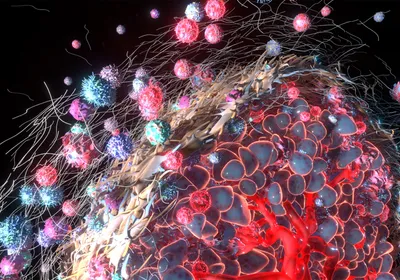ABOVE: COMPOSITE FROM © ISTOCK.COM, DESIGNER; © ISTOCK.COM, ANASTASIA USENKO
Artificial intelligence has the potential to revolutionize healthcare. Machine learning (ML), a form of AI that uses algorithms to simulate aspects of human decision making, has gained a lot of attention in recent years. While the potential application of ML to healthcare is broad, many recent breakthroughs have been in the realm of image-driven diagnostics.
The diagnosis of cancer, particularly solid tumors, relies heavily on the visual interpretation of histologic slides by pathologists who use their experience in pattern recognition to render a diagnosis. This is a difficult and time-consuming skill for humans to master, but an ideal task for ML technology, which can use thousands to millions of images to train algorithms in a relatively short period of time. Given the ability to “learn” from large amounts of data, ML-powered systems hold promise for delivering faster and more-consistent cancer ...























